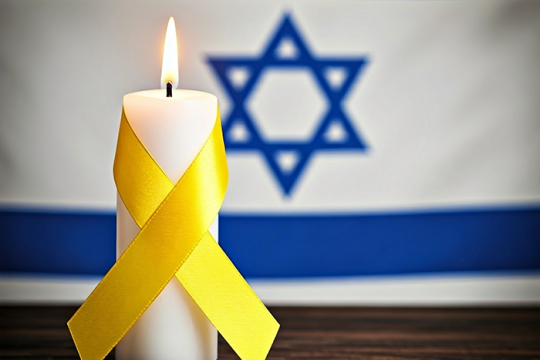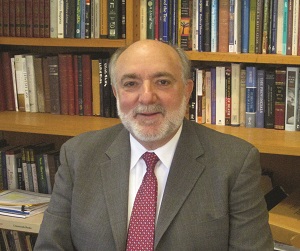
When the State of Israel was established in 1948, its secular founders envisioned a nation that would be both Jewish and attuned to the values of liberal democracy. They were confident that a country with an overwhelming Jewish majority could maintain a Jewish character and ensure civic equality for all its inhabitants. Informed as they were by both Jewish tradition and humanistic western values, they confidently declared in Megillat Ha’atzmaut, the Israeli Declaration of Independence, that they were establishing a Jewish state in which there would be “complete equality of social and political rights to all its inhabitants irrespective of religion, race or sex.”
In 1992, the Israeli Knesset affirmed and extended this founding vision by passing a Basic Law, “K’vod ha-adam v’haeruto – Human Dignity and Liberty,” designed “to protect human dignity and liberty” within the State of Israel and “to establish the State of Israel as a Jewish and democratic state." However, in the years since it was enacted, there have been countervailing currents on the Israeli scene; rather than viewing these qualities as complementary and indivisible in characterizing the State, recent trends have seen them as being in tension one another. These trends have promoted the principle of ethnic nationalism to as the current lodestar of the State.
This counterview found explicit expression in another Basic Law, Hok ha-l’um, the Nation-State Law, passed by the Knesset in 2018. It holds that the “State of Israel is the nation state of the Jewish People, in which it realizes its natural, cultural, religious and historical right to self-determination.” The Law further affirms, “The exercise of the right to national self-determination in the State of Israel is unique to the Jewish People.”
By assigning priority to the “Jewish” character of the State over the “democratic” one in the Nation-State Law, numerous critics have charged that this simply expressed a growing trajectory during the past two decades that holds that Israel has fallen under the grip of an anti-democratic and anti-human rights virus.
Avigdor Lieberman’s Yisrael Beiteinu party states on its Hebrew website that Israel is “a state of the Jewish people” and that “in case of a collision between democratic values and the preservation of Israel’s character as a Jewish state the Jewish state will prevail.”
Israeli Open University sociology professor Benyamin Neuberger offers an explanation as to why this is so: “The problems posed by the Occupation under a military government, the importance of the security issue that leads many parents and teachers to perceive human and moral rights as a luxury when confronting war and terror, the problem of religion and state, and attitudes of religious traditionalists that Jewish should take priority over democratic in considering Israel as a Jewish and democratic state” have all combined to lessen the uncompromising loyalty of the State to democratic values.
I would argue that the crux of the moral problem present-day Israel has in balancing its twin commitments to a “Jewish and democratic” state is not simply due to contemporaneous events and causes. This does not mean that the causes Neuberger identified are not critical to understanding the present moment. Nor is there any doubt that an ever-growing Palestinian minority dwelling within the pre-1967 borders of the State as well as millions more Palestinians living after 1967 under an unwelcome Israeli occupation on the West Bank has further intensified the tensions Israel confronts as it struggles with the question of a “Jewish and democratic” nation.
All this is true. However, anyone who seeks to comprehend the ethical dilemma in the current situation must not see it as the result of the past few years alone. Rather, the challenge of creating a “Jewish and democratic Israel” has its origins in diverse and unresolved ideological and religious conflicts present at the establishment of the State.
From the start, Rabbi Isaac Halevi Herzog (1888-1959), the first Chief Ashkenazic Rabbi of the State, in his Tekhukah l’yisrael ‘al pi hatorah (A Constitution for Israel According to the Torah) refused to affirm the desirability of democratic values in their own right. He yielded to such values only because the existential reality of his era left him no other option if Israel were to come into existence. The legacy bequeathed by his arguments remains strong today among vast sectors of Israeli da’ti’im (religious group) and serve as an ideological obstacle to those who would create a “Jewish and democratic” state. Indeed, his views contribute to the right-wing nationalistic trajectory of Israeli politics at present.
At the same time, the authors of Megillat Ha’atzmaut, while surely believing in the “democratic values” they wrote into their Declaration, granted the notion of “Jewishness” hierarchical superiority in the pantheon of values that established the State. To be fair, these secular founders genuinely believed that they could establish a nation in which the “Jewish” character of the State could reside in harmony with the values of liberal democratic societies. However, this “marriage” between “Jewishness and democracy” was viable because the Declaration was made against the backdrop of an Israeli demographic reality in which only 12% of the population of 873,000 was Arab and at a time when the principles of liberal democracy were societally ascendant.
Today, the context is significantly different. Ethnonationalism has manifested itself all over the globe, and challenges to liberal political values are commonplace throughout the world. Political vectors in Israel surely reflect these worldwide trends. Furthermore, the current population of Israel is 9.25 million persons, of whom 2.4 million are non-Jewish. Palestinians now constitute 1/4th as opposed to 1/8th of the population. In short, the Jewish majority has diminished over the decades.
In sum, I do not think that a “Jewish and democratic” Israel is impossible of attainment. However, a strong and secure Jewish majority is as much a prerequisite for the realization of the vision of a “Jewish and democratic” Israel today as it was when the State was created in 1948. Otherwise, the anti-democratic currents present in the writings of Herzog and the hierarchical ordering that assigns “Jewishness” superiority over a moral commitment to equal rights for all the inhabitants of the State will dominate and render the ethical vision of a “Jewish and democratic” Israel incapable of fulfillment. Such an outcome would surely constitute a hilul ha-shem, a “moral blunder” that would stain not only the State but the people Israel.
This piece is based on a larger article by David Ellenson, “The Ethical Conundrum of a Jewish and Democratic State.” Journal of Jewish Ethics, vol. 6, no. 2, 2021, pp. 164–183. JSTOR. Accessed 4 June 2021.
Related Posts

Marking this Moment: Resources for the Release of the Hostages

From Scared to Sacred: Healing Our Collective Trauma in the New Year

